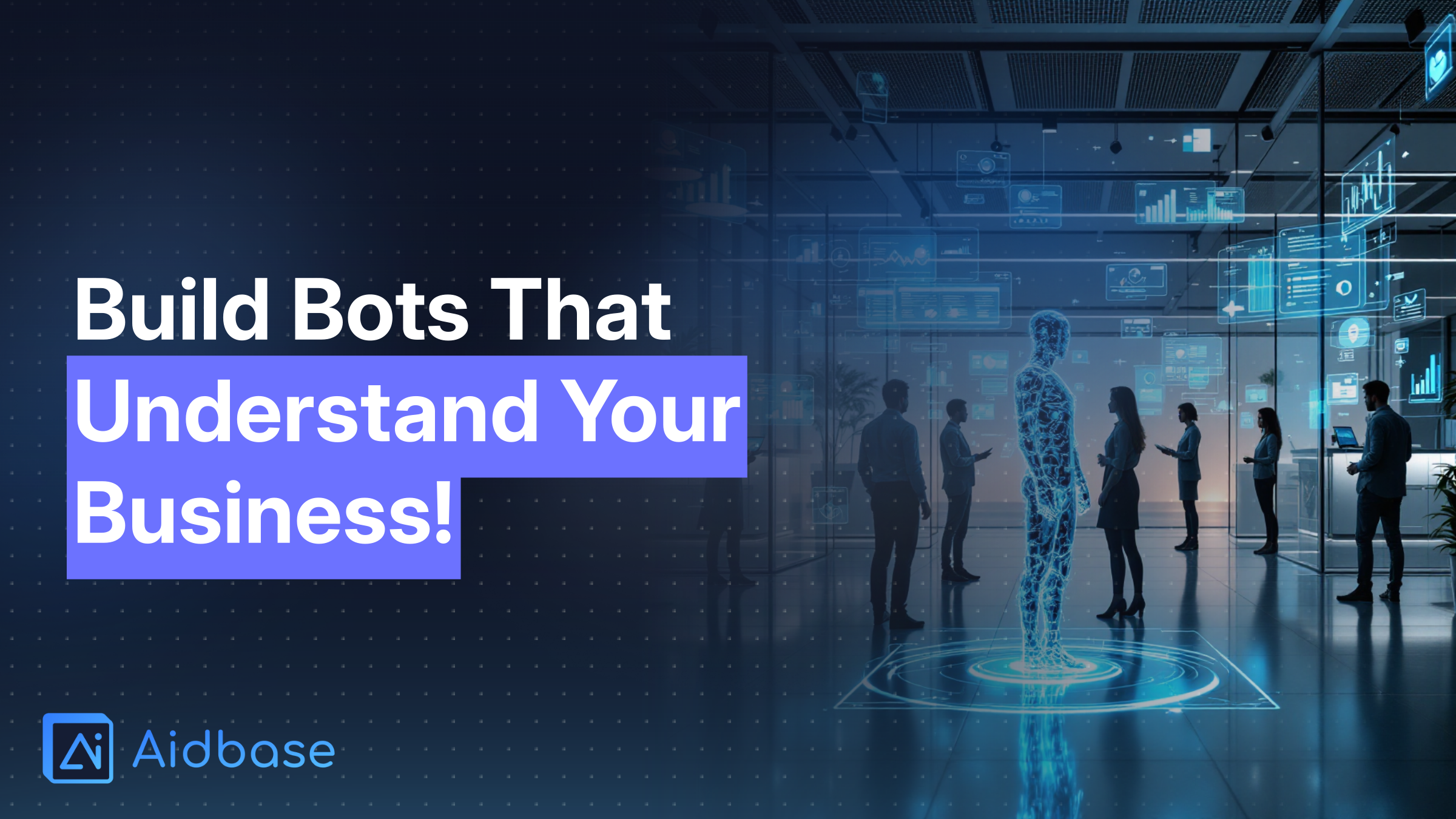In the rapidly changing technological landscape, businesses are increasingl...

In today's fast-evolving technological landscape, businesses are increasingly turning to AI to transform customer support. However, not all AI assistants are created equal. Domain-aware support bots, which understand the unique context, workflows, and terminology of individual companies, have set themselves apart from generic AI solutions. This deeper level of expertise means that customer inquiries are handled with greater precision and relevance, ultimately boosting satisfaction and trust.
Domain-aware support bots are designed to operate with a deep understanding of a company's internal processes and specialized vocabulary. Unlike off-the-shelf AI assistants, these bots are trained on proprietary data, which equips them for nuanced interactions. For companies, this means a customer interacting with the bot receives responses that are not only correct but also contextually relevant. The idea is to bridge the gap between customer queries and complex internal processes that only domain experts fully understand. By linking the bot’s knowledge to the intricacies of a specific industry, companies can ensure both speed and quality in customer support.
Generic AI assistants tend to rely on broad knowledge bases that cover a wide range of topics across multiple fields. While this can be useful for simple, everyday queries, it falls short when specialized expertise is required. Domain-aware AI, on the other hand, benefits from data specifically collected from the company’s knowledge repositories, workflow documents, and industry guidelines.
This specialization was highlighted by Objectivemind.AI, which notes that custom AI assistants can outperform even the best generic options by delivering tailored experiences (Objectivemind.AI).
Developing domain-aware support bots comes with its own set of challenges. Building these bots requires an intricate balance between technical expertise and a deep understanding of the industry. Here are some of the key hurdles:
Despite these challenges, a methodical and well-planned approach can lead to a highly effective and secure AI assistant that meets industry-specific needs.
Feeding custom knowledge into AI models is pivotal for the creation of effective domain-aware support bots. Here are some actionable steps:
Data Collection and Preparation: Start by gathering large volumes of high-quality, domain-specific data. This might include internal documents, training manuals, and proprietary workflows. Data cleansing is essential to remove inconsistencies and ensure that the training set accurately reflects the company’s operations. TechTarget emphasizes the importance of overcoming data quality issues in manufacturing and other sectors (TechTarget).
Annotation and Structuring: Once the data is collected, it should be annotated and organized so that the AI can learn context and relevance. This phase may require input from domain experts to ensure that the nuance in technical terms and processes is correctly captured.
Continuous Monitoring and Optimization: Post-deployment, it is important to continuously monitor the performance of the AI assistant. Regular updates and adjustments ensure that the model evolves with the business, adapting to new processes or changes in industry standards.
Integration with Business Systems: Collaborate closely with IT teams to design systems that allow for real-time data synchronization between the business’s existing software and the AI platform. This is crucial for maintaining consistency and ensuring that the assistant provides up-to-date information.
By implementing these steps, companies can ensure that their support bots are well-equipped to deliver targeted and expert assistance to their customers.
Various sectors have already reaped the benefits of deploying domain-aware support bots. Here are a few examples:
SaaS Industry: Companies like Salesforce have implemented AI assistants that are deeply integrated with their platforms. These bots offer context-aware support by understanding the specific functionalities and user environments specific to SaaS products, thereby significantly enhancing the customer experience.
Finance Sector: Financial institutions use customized AI to deliver personalized advice and support. These bots are trained on sensitive financial data and regulatory requirements, ensuring that the advice offered is both informed and compliant with industry standards.
Hardware Manufacturing: In manufacturing, AI-driven design automation is increasingly common. By using domain-aware bots, manufacturers optimize product development cycles, streamline workflows, and reduce time-to-market, as seen with implementations discussed in AI design automation research on Wikipedia (Wikipedia).
Each example underlines how integrating specialized AI can lead to improved operations and a more satisfying customer support experience.
The adoption of domain-aware AI assistants offers several compelling benefits:
Improved Accuracy: With deep training on custom data, these bots provide precise responses that align with specific operational contexts. This reduces misunderstandings and the need for human intervention.
Enhanced Customer Experience: Tailored interactions that speak the customer’s language—both literally and figuratively—lead to increased customer satisfaction and loyalty.
Operational Efficiency: Seamless integration with existing systems means that routine queries are resolved quickly, freeing up human resources to focus on more complex issues.
Scalability: Domain-aware bots can scale as businesses grow, continuously learning from new data and evolving alongside company processes.
These advantages help firms maintain a competitive edge in their respective markets while ensuring that customer service standards remain high.
For businesses looking to jump-start their journey with domain-aware support bots, platforms like Aidbase offer invaluable resources. Aidbase assists in integrating custom data into AI models and streamlines the development process by providing tools designed for real-time data syncing and continuous performance monitoring. Their solutions are tailored to address the specific challenges of various industries, ensuring that the resulting AI assistant is both robust and compliant.
Domain-aware support bots represent the future of customer service in the AI realm. Their ability to understand and respond to specialized business contexts translates into more efficient operations and highly satisfying customer interactions. As data quality, integration techniques, and regulatory frameworks continue to evolve, these AI systems will become central to competitive business strategies across industries. By investing in the creation of specialized AI assistants today, companies can secure a technological edge for tomorrow—one where AI not only processes information but truly understands the dynamics of each industry.